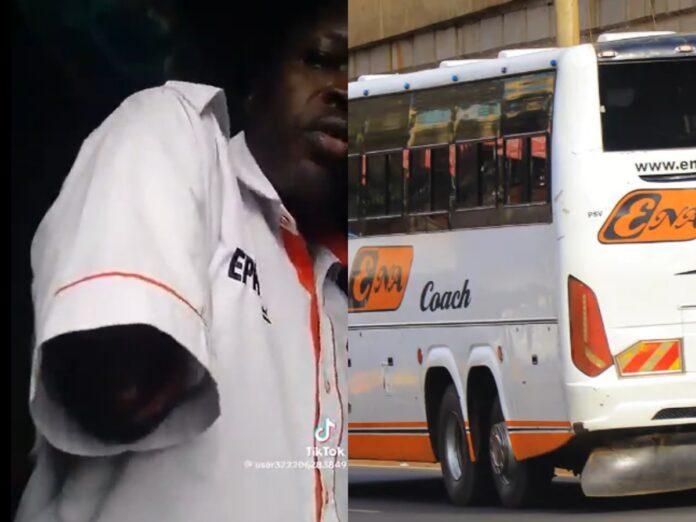By Michelle Ndaga
Henry Kochi, a former bus driver for Ena Coach in Kenya’s Nyanza region, is calling for urgent help after losing his arm in a February road accident.
Kochi says he risked his life to protect more than 60 passengers all of whom survived but now he faces mounting medical bills, joblessness, and alleged neglect from his former employer.
According to Kochi, the accident occurred while he was behind the wheel driving for Ena Coach. He says he shielded his passengers during the crash, but the cost of that bravery has been high: he lost his left arm (some reports say hand), and since then, Ena Coach has failed to compensate him properly.
The driver claims he has made repeated trips to the company’s offices, filled out insurance forms, and engaged in bureaucratic back-and-forth but to no avail. Tuko.co.ke reports that he fears the insurance paperwork provided by Ena Coach is flawed or unusable, blocking his path to compensation.
Kochi’s plight has struck a chord on social media, where netizens are rallying behind him. Many are urging quota and labour authorities to step in to enforce his rights under Kenya’s Work Injury Benefits Act (WIBA). The law requires employers to compensate workers who suffer injuries at work, including in road accidents, but enforcement remains uneven.
Legal experts say Kochi may have a strong case under WIBA, which mandates prompt employer or insurer response to injury claims. Meanwhile, road transport stakeholders note that driver protection and accident compensation remain critical issues in Kenya’s public transport sector especially for high-risk workers like long‑distance bus drivers.
For Kochi, the journey to recovery is not just physical but financial. Without his arm, he struggles to return to work. He says that unless Ena Coach or the insurer honors their obligations, he and his family face an uncertain future.


















